Biden admin urges Trump team to focus on Iran's murder-for-hire plots - Semafor
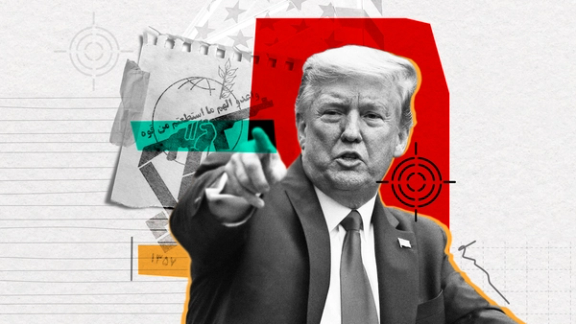

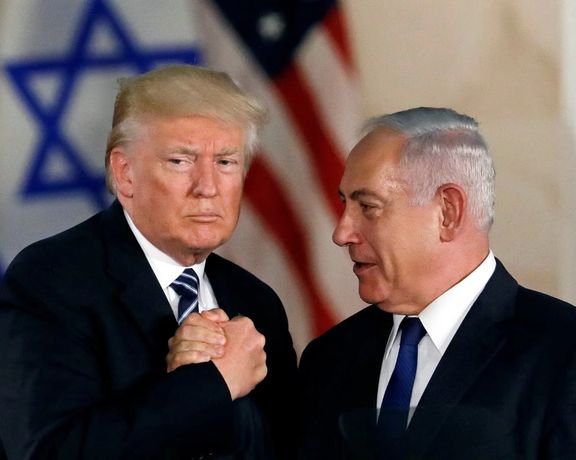
Israel and the United States will work together to defeat Iran and end its regional influence, Israeli prime minister Benjamin Netanyahu said in a message congratulating US president Donald Trump on his inauguration day.
“I am confident that we will complete the defeat of Iran’s terror axis and usher in a new era of peace and prosperity for our region,” Netanyahu said addressing Trump in a video released on Monday.
“You withdrew from the dangerous Iran nuclear deal, you recognized Jerusalem as Israel’s capital … and you recognized Israel's sovereignty over the Golan Heights,” Netanyahu said, reflecting on Trump’s first term and his pro-Israel, anti-Iran policies.
With Trump’s return to the White House, significant shifts in US foreign policy are anticipated, particularly in the Middle East.
Israel's former defense minister Yoav Gallant also mentioned Iran in his congratulation note on Trump's inauguration day.
"Our ties are critical to Israel’s security and prosperity - to the return of the hostages, to the removal of the Iranian threat, to achieving our common goal of dismantling the ‘axis of evil’," he wrote in a post on X.
The Trump administration is expected to take a hard stance against Tehran. Both the president and senior members of his team have promised a return of the so-called maximum pressure campaign on Iran.
During his 2024 campaign, Trump said he wished prosperity for Iran but stressed the long-standing Washington red line that the theocracy must not be allowed to acquire nuclear weapons.
Anticipating potential pressures, some in Iran including senior aides to Iran’s president Masoud Pezeshkian have openly called for talks with the Trump administration, suggesting even that the country’s markets can be opened to American companies.
This has not gone down well with the more hardline factions of the Islamic Republic, who inspired and encouraged by the supreme leader Ali Khamenei, warn against any advance by Tehran toward Washington.
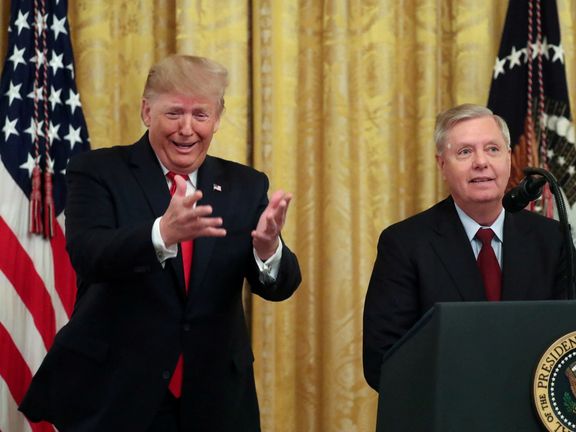
There is no point in negotiating with Iran about its nuclear program and President Donald Trump should instead help Israel bomb it, Senator Lindsey Graham said.
The comments by the hawkish South Carolina senator who is a longtime Trump confidant are among the most direct yet by a senior decision-maker supporting a US military intervention on Iran.
"The next question for the world is what do we do about the Iran nuclear program," Graham told CBS Face the Nation on Sunday.
"With diplomacy, there's a one in a trillion chance you'll degrade the Iranian nuclear program. There's a 90% chance you'll degrade it through military action by Israel supported by the United States.
The veteran senator is one of the biggest advocates of a more muscular policy abroad and is a vocal supporter of Israel and its Prime Minister Benjamin Netanyahu, whom he credited with delivering heavy blows to Iran-backed groups Hezbollah and Hamas.
Trump said in November that Iran "can't have nuclear weapons" but "I’d like them to be a very successful country."
Sworn in on Monday, Trump has repeatedly suggested he is disinclined to pursue regime change in Iran and has not publicly mentioned any military option on Iran.
Graham said he would engage Trump "to take this moment in time to decimate the Iranian nuclear program, to help Israel deliver the knock-out blow."
"(The Islamic Republic) is a religious nazi regime," Graham continued. "They want to destroy the Jewish State, they want to purify Islam and drive us out of the Mideast, it would be like negotiating with Hitler.
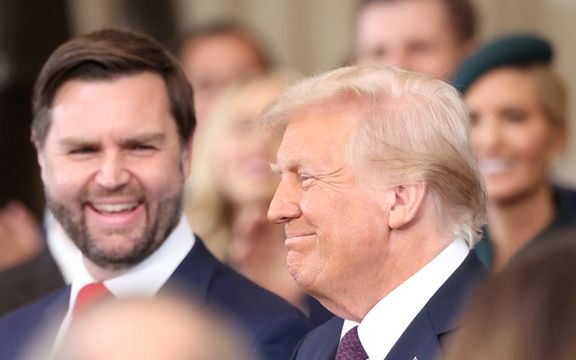
"It is a sad morning for the dictators of Moscow, Tehran, Beijing, Pyongyang, Caracas, and Tbilisi. Trump is back! Make America Great Again. Peace through Strength," Congressman Joe Wilson tweeted on Monday.
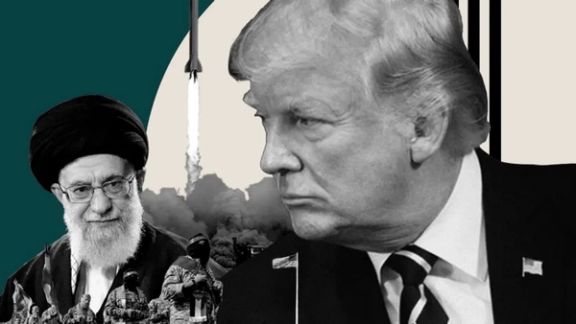
Iran's nuclear program is central to strengthening national security and deterring international threats, a top official said on Monday as hawkish President Donald Trump returned to the White House after repeatedly vowing to deny Tehran a bomb.
“Over the years, adversaries have tried to weaken Iran in this field and entangle the country in international issues," Behrouz Kamalvandi, the spokesperson for the Atomic Energy Organization of Iran (AEOI) said during a military conference in Tehran
"That is precisely why they do not want Iran to have full, indigenous control over it.”
Kamalvandi emphasized that the nuclear program not only strengthens Iran's international position but also drives domestic progress.
“This industry has significant impacts on people’s lives,” he added, highlighting applications for energy, medicine, agriculture, and environmental protection.
Iranian officials have repeatedly asserted that the country's nuclear program is peaceful, referring to a religious ruling by Khamenei prohibiting weapons of mass destruction, including nuclear bombs.
However, Kamalvandi's remarks emphasized its potential to create deterrence and balance power on the international stage, aligning it with broader security objectives.
“Power in today’s international world is distributed based on balance and realism. Islam recognized this long ago and considered power as a foundation for creating deterrence."
Iranian hardliners have previously advocated for developing nuclear weapons as a deterrent. Following Israeli airstrikes on October 26, Javan, a newspaper affiliated with the Islamic Revolutionary Guard Corps, urged Tehran to consider developing nuclear arms to counter external threats.
Last year in October, amid heightened tensions with Israel, thirty-nine Iranian lawmakers called on Iran's Supreme National Security Council to review the country's defense doctrine and consider adopting nuclear weapons.
Kamalvandi’s remarks come at a time when tensions with the United States are widely expected to escalate following Donald Trump’s inauguration.
Tehran has expressed concern that Trump’s administration might embolden Israeli Prime Minister Benjamin Netanyahu to consider striking Iran’s nuclear facilities, further intensifying the region's volatile security dynamics.
Casting his vote on Election Day in November, Trump appeared to downplay any attempt to knock out Iran's ruling system but said Iran could not have nuclear arms.
“My terms are very easy,” Trump said, adding that Iran "can't have nuclear weapons." "I’d like them to be a very successful country,” he added, but declined to detail specific plans for US-Iran relations should he return to office.
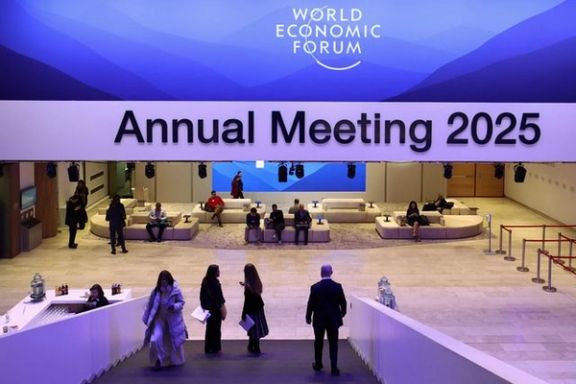
Iran's Vice-President for Strategic Affairs Mohammad Javad Zarif departed Tehran for Switzerland on Monday morning to attend the World Economic Forum's annual meeting.
In addition to meetings and panel discussions, state media reported that Zarif is scheduled to participate in a conversation with CNN host Fareed Zakaria on the event's sidelines.
While business and political leaders began gathering in Davos on Monday for the four-day summit, US President-elect Donald Trump's swearing in ceremony was expected to dominate discussions despite his absence from the event.
Trump will address participants virtually on Thursday.
Last year, the World Economic Forum faced calls to revoke its invitation to Iran’s then Foreign Minister Hossein Amir-Abdollahian due to his close ties to the Islamic Revolutionary Guard Corps (IRGC) and support for Hamas.